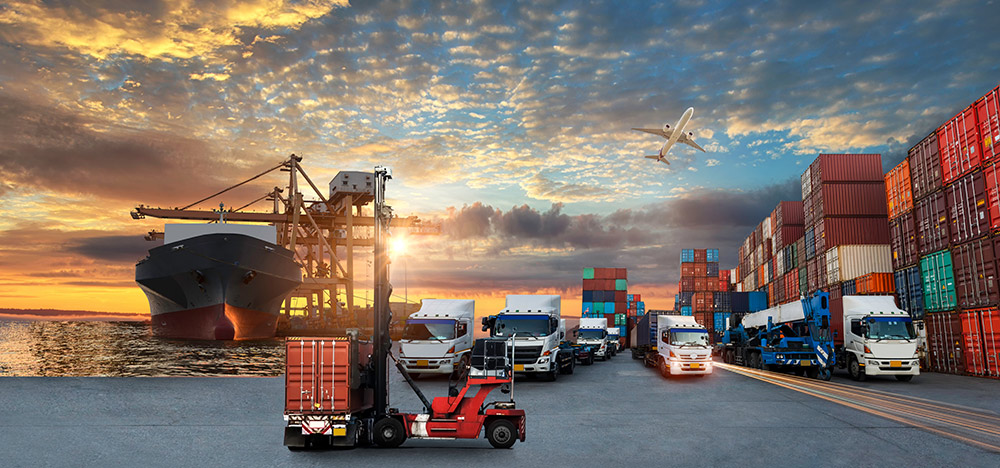What Is Freight?
Pronounced frāt, like the number eight, freight refers to goods transported in bulk (at least 150 pounds) by ship, plane, train, or truck. While standard dictionaries list multiple synonyms for freight (such as cargo, load, and payload), these terms can’t be used interchangeably in the shipping business.
The word cargo typically refers only to goods transported by ship or plane (hence the expressions cargo ship or cargo plane). In logistics, the term load actually refers to the entire shipment of freight, and payload is the maximum load weight of a container.
What Is Freight Shipping?
Freight shipping refers to the transportation of goods by land, sea, or air. This freight shipping definition applies to both domestic and international transportation. Other freight terms you’ll need to know describe the various modes of freight shipping that are available.
Less Than Truckload
Less than truckload (LTL) is used when shippers don’t have enough freight to fill an entire truck. Since only part of the trailer is needed, LTL freight is shipped with goods from other businesses, and all of those businesses split the cost for the entire truckload. The truck may be required to make multiple stops or transfers to meet the requirements of each shipper. LTL is generally an economical and reliable way to transport shipments from 150 to 15,000 pounds.
Full Truckload
Full truckload (FTL), also referred to as truckload (TL), utilizes an entire trailer to carry freight from a single shipper to a single location. Normally reserved for more than 15,000 pounds; or goods that need more space, FTL reduces the opportunity for freight damage because there is less handling than with LTL. Goods also arrive at their destination sooner because there is no need for the multiple stops and transfers associated with LTL. For goods requiring special handling, FTL may be the most cost-effective mode of shipping.
Intermodal
Intermodal (ITML) refers to the shipping of freight by more than one method of transportation. While it may refer to any combination of transportation modes, ITML typically refers to a combination of rail and truck. Shipping by rail is a popular choice in North America due to the extensive railroad systems throughout the United States and Canada. Besides being economical and efficient, freight shipping by rail is environmentally friendly because it uses less fuel, reduces greenhouse gas emissions, and saves on the wear and tear on roadways.
Air
Air freight shipping is the fastest and usually the most expensive form of transporting cargo. For goods that are perishable, time-sensitive, or extremely valuable, shipping by air is often the best choice. The most common options for air freight are next flight out, consolidated (multiple shippers’ goods are shipped together), deferred (used when time isn’t as big a factor), and air charter (usually for large and/or high-value goods).
Ocean
In our global economy, most goods are transported at some point by ocean freight shipping. During shipping, cargo is stored in standardized containers that protect the goods inside and also allow for easy and efficient movement across the supply chain. Container ships allow shippers to transport a full container load (FCL) or less than container load (LCL) and offer a variety of transit time options. While it has traditionally been the most cost-effective method for transporting goods around the world, ocean freight shipping costs have increased dramatically since the beginning of the COVID-19 pandemic.
Expedited
Also called hot shot or express, expedited refers to time-sensitive shipments that have to be moved at high speed. Expedited freight is typically transported by truck or air and offers same-day delivery.
Nexterus Finds the Best Shipping Options for Your Business
If you want to learn more about which logistical options suit your supply chain the best, put your trust in the expertise of Nexterus. As the country’s oldest privately held 3rd party logistics firm of its kind, Nexterus has decades of experience working with qualified transportation & logistics partners. We put that experience to work by finding the most cost-effective and reliable options to handle your shipping needs. Contact us today to learn about our full line of supply chain management services.



